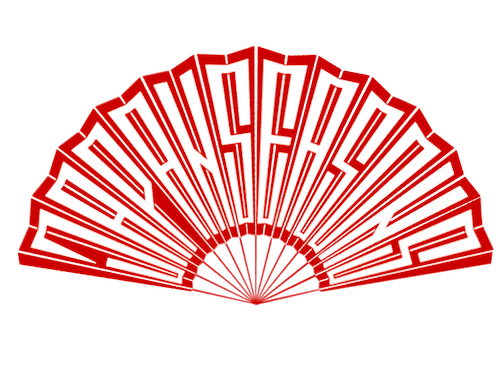Jisho-ji Temple, better known as Ginkakuji or Silver Pavilion, was built in 1490 as the residence of the 8th Shogun of the Ashikaga family, Yoshimasa. After his death, the complex was converted into a Buddhist temple belonging to the Shokoku-ji temple school. The Silver Pavilion, a small two-story building overlooking the garden, was designed to imitate the Golden Pavilion (Kinkaku-ji), built by Yoshimasa’s grandfather, Ashikaga Yoshimitsu. The pavilion and the surrounding moon-viewing garden have been designated a UNESCO World Heritage Site.
- Tours
- Kyoto – One Day Tour – Higashiyama
Kyoto One Day Tour “Kyoto sightseeing tour”
Hotel/Kyoto Station → Ginkakuji Silver pavilion → Philosopher’s Path → Nanzenji Temple → Murin-an garden → Heian-jingu Shrine → Kyoto Museum of Crafts and Design → Hotel/Kyoto Station
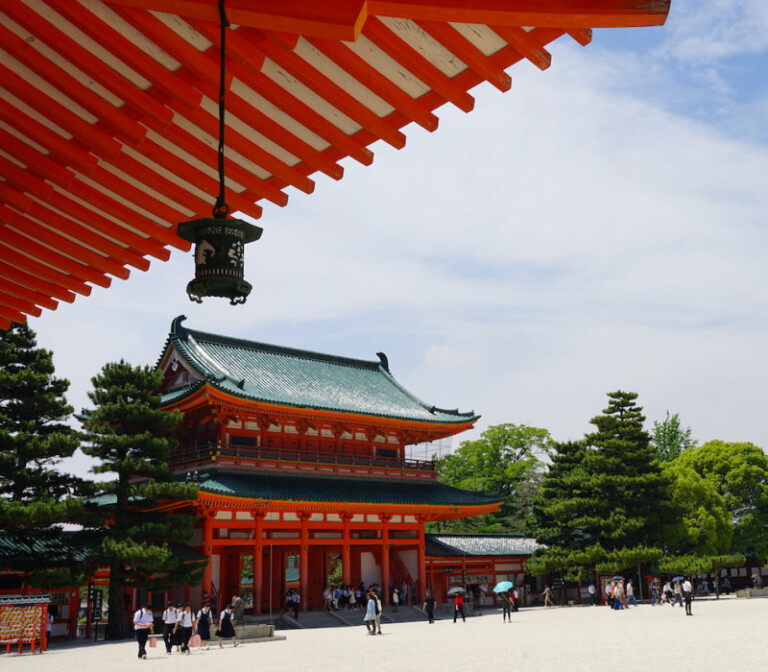
CUSTOMIZED ITINERARY FOR YOUR DATES
Dates
- One Day Tour
Duration
- 8 hours
Price
- Request
Daily itinerary
Kyoto One Day Tour, any time of the year
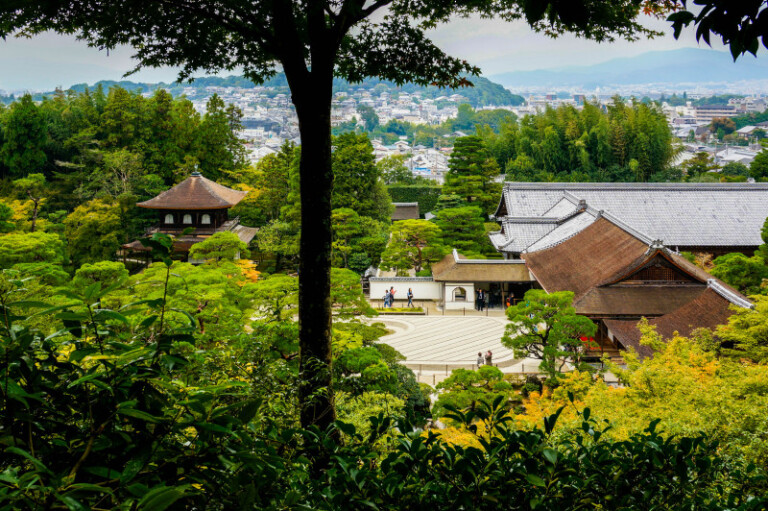
Ginkaku-ji (Silver Pavilion)
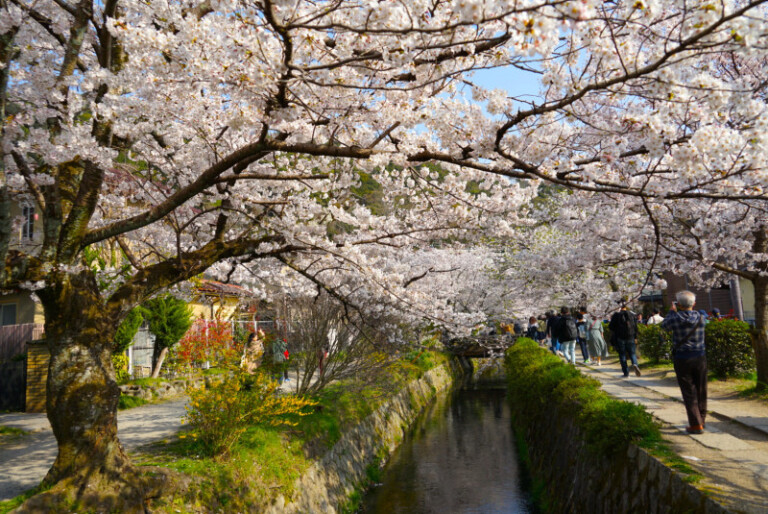
Philosopher's Path
The Philosopher’s Path is a two-kilometer pedestrian path that follows a cherry-tree-lined canal in Kyoto between Ginkaku-ji and Nanzen-ji temples. In the early 20th century, the famous Japanese thinker, the founder of the Kyoto school of philosophy, Nishida Kitaro, often came here. On the way from his home to Kyoto University, the professor indulged in philosophical meditations and enjoyed the delightful flowers here. Nowadays, the Philosopher’s Path is one of the most famous places in Kyoto for hanami – admiring the cherry blossoms. Alongside the canal are numerous temples and shrines, stores and restaurants serving traditional Japanese food, and several hundred sakura trees of the Somei Yoshino type that enchant residents and visitors with their lush blossoms in spring.
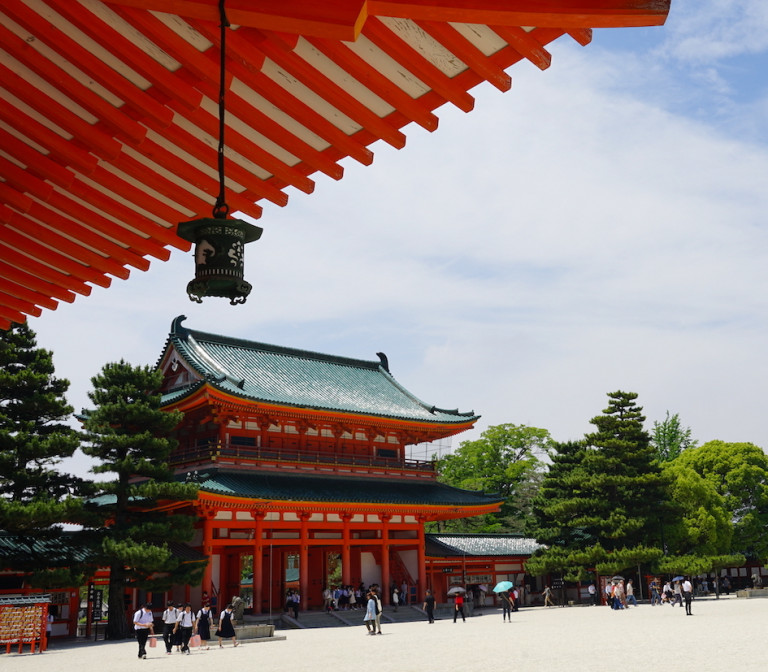
Heian-jingu Shrine
Heian-jingu Shrine was founded in 1895 to commemorate the 1,100th anniversary of Kyoto. There is a scaled-down replica of the first imperial palace after the capital was moved here from Nara. The complex with a promenade garden was named Heian-jingu after the Old Capital. It was dedicated to the deities Kammu and Komei (the first and last emperors who ruled in Kyoto).
